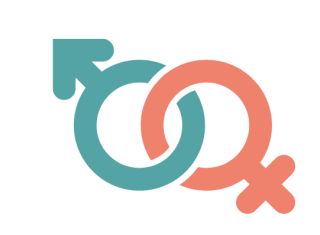Gender
The Debate About Sex Assigned at Birth
Accounting for sex in biological research is complicated.
Posted June 29, 2024 Reviewed by Devon Frye
Key points
- There has been a lot of rethinking about how we define biological sex of late.
- Some biological scientists struggle with these changes because of the way studies are traditionally conducted.
- We need a middle path to understand the true nature of sex and gender.
It is becoming increasingly common in many medical and academic circles to stop referring to a person as “male” or “female” and instead refer to their “sex assigned at birth.” The motivation behind this is a welcome desire to understand the needs of transgender and gender-diverse people who are often the victims of discrimination and stigma, which can lead to significant disparities in health care and imperil the health of sexual minority people.
Yet the move away from talking about sex in biological research and medicine may also be problematic in certain circumstances. As discussed in a May 15 article in the journal Nature, “Neglecting sex and gender in research is a public-health risk,” there is no question that differences exist between men and women in a variety of health outcomes.
The authors write that three things about sex and gender must be considered in biological research and medical practice: “How sex and gender can have huge effects on health outcomes; how these effects are often disregarded in basic research and clinical trials; and that change can come only through increasing awareness among all stakeholders of the importance” of rethinking how we approach the topics of sex and gender.
Is Sex Assigned at Birth Problematic?
A philosopher, Alex Byrne, and an evolutionary biologist, Carole K. Hooven, recently decried the use of the phrase “sex assigned at birth” in a New York Times op-ed. “Sex is a fundamental biological feature with significant consequences for our species,” they wrote last April, “so there are costs to encouraging misconceptions about it.”
They go on to reiterate the points made in the Nature article, emphasizing that there are unmistakable differences in many aspects of health that are based on an individual’s biological sex, and state that the phrase sex assigned at birth “can also suggest that there is no objective reality behind ‘male’ and ‘female,’ no biological categories to which the words refer.” Byrne and Hooven reject the idea promulgated by philosophers like Michel Foucault and Judith Butler that “sex is somehow a cultural production, the result of labeling babies male and female” and insist that “Sexed organisms were present on Earth at least a billion years ago, and males and females would have been around even if humans never evolved.”

Health Outcomes Differ Between Males and Females
As noted in the Nature article, “For Alzheimer’s [disease] and many other diseases that are common causes of death, including cardiovascular diseases, cancer, chronic respiratory conditions, and diabetes, a person’s sex and gender can influence their risk of developing the disease, how quickly and accurately they are diagnosed, what treatment they receive and how they fare.”
Note that these authors refer both to sex and gender. Sex is generally conceived of as encompassing the biological differences between males and females, based on genetics and sex hormones, whereas gender includes “the social, psychological, cultural and behavioral aspects of being a man or woman (whether cisgender or transgender), non-binary or identifying with one or more other evolving terms.”
The Nature authors point to a host of differences in the expression of diseases like heart attacks, strokes, and cancer. Examples include that men develop cardiovascular disease earlier than women, women are more likely to develop Alzheimer’s disease than men, cancer chemotherapies work better in women than men and so on—to which we would add that depression and anxiety disorders are more common in women than men.
Some of these may be explained by sociocultural factors. For instance, men are more likely to smoke tobacco than women and this increases the risk for cardiovascular disease and many forms of cancer.
Other differences, however, in disease expression and health outcomes may be due to more clearly biological factors and these are, according to the Nature authors, substantially understudied. “Take the sex of the cell lines that are stored in commercial cell banks,” they point out, “which have been studied for decades and are the source of today’s textbook knowledge.” In many cases, male lines outnumber female lines.
On a clinical level, women are underrepresented in many trials of new therapeutics, leading to a significant lack of knowledge about differences in treatment responses between the sexes. This can have disastrous consequences. “Between 1976 and 2000… eight prescription drugs were retracted from the U.S. market because inadequate clinical testing in women had failed to identify that the drugs put women at greater risk of developing health problems than men.”
The debate about how to talk about sex is clearly heated. On the one hand, there are risks to ignoring biological differences between men and women and to taking the position that sex lacks any objective reality. On the other hand, insisting that everything about sex is biological and determined by genes and hormones ignores the complexities of human psychology and denies the reality of people who do not conform to binary sex categories.
More Nuanced Research Needed
Clearly, a more nuanced approach is necessary. An example of this is research recently reported from the University of Montreal that examined both biological factors and psychosocial factors that determine cognitive differences.
It is known that in general women perform better than men on tests of verbal and fine motor ability, whereas men do better on spatial and mental rotation tasks. The Montreal investigators recruited 222 adults who represented several different subgroups: cisgender heterosexual men, cisgender non-heterosexual men, cisgender heterosexual women, cisgender non-heterosexual women, and gender diverse people. The research study participants were administered a series of cognitive tests, gave saliva samples for measurement of sex hormones, and completed self-report questionnaires about psychosocial variables.
The study found that “biological factors seem to better explain differences in male-typed cognitive tasks (i.e., spatial), while psychosocial factors seem to better explain differences in female-typed cognitive tasks (i.e., verbal).” Hence, sex was associated with cognitive abilities commonly found to be stronger in men than women whereas gender was associated with cognitive abilities commonly found to be stronger in women than men.
Of course, studies like this one need to be replicated before we draw conclusions, but this one represents a welcome accounting of a variety of factors to try to disentangle differences between males and females, some based on biology and others on cultural and psychological factors. Until we have more of this kind of work, we will be left in the dark about the fundamental ways in which men and women differ, making us ignorant of factors with profound influence on the expression and course of many human diseases.
For now, we will continue to use the phrase “sex assigned at birth” because we recognize the importance of the inclusion of people who don’t identify as binary. However, we will also support research aimed at furthering our understanding of the ways the complexity of sex and gender affects human health.




